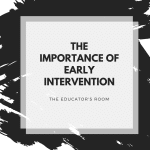It’s important for students to be well-rested and prepared for each day of learning, but video games and excessive screen time can make getting that rest a challenge. It’s hard to avoid screen time these days. Cell phones and computers are ever more present in our daily routines. Some restaurants even take your order on a touch-screen now. My local Wal-Mart is slowly eliminating cashiers and replacing them with do-the-job-yourself scanners and screens. This dehumanizing impact of technology and modernization separates people from their jobs and from each other. The excessive exposure to the light emitted from these screens, if not limited, can throw off sleep patterns. We know that a lack of sleep can negatively impact academic performance.
The role video games play
Many of our students play video games daily. Some research shows that a few hours of video gaming a week can actually have benefits, but the impacts might be negative if nine or more hours a week are spent gaming. Health Day reporter Alan Mozes writes:
Playing video games might improve a child’s motor skills, reaction time and even academic performance, but new research shows that too much gaming can be linked to social and behavioral problems.
Her article doesn’t claim a direct causal link between games and misbehavior but think about it. More time spent in the world of games and with the characters in them means less time spent connecting to the real world and the people in it. Also, unsupervised play means students staying up late into the night, and possibly playing when homework should be getting done. Less rest, due to the excitement of gameplay and the disruption of sleep patterns caused by screen time leads to kids being tired and inattentive in class. Attention span may be lessened because gaming provides constant stimulation: feedback, response, and reward with no lines and no waiting.
The academics just can’t compete with the missions and adventures available. Pencils and erasers lose easily to keyboards and controllers.
Video games aren’t entirely bad
For many of the most popular games, the scenery is expansive and changes constantly. Non-player characters react differently based on the players’ choices. The challenges are relentless, and the action is never-ending. The depth and intricacies of today’s video games are impressive, and it can make quiet, calm tasks requiring patience and rigorous thinking with prehistoric tools like books, pencil, and paper far less rewarding for students.
Now, full disclosure:
I am no moral purist on this issue. I have always liked video games, and remember having one of the early “Pong” consoles. It had two knobs on the top, putting opponents right next to each other turning those knobs right and left and right and left… Vertical bars playing opposing players and goaltenders go up and down and up and down. A white “ball” was bounced back and forth between them, and if the ball wasn’t blocked and returned the opposing player scored. If you know the game, you might even remember the simple “beep-boop…boop beep” sound that was the sound effect for that game.
Since then, I have lived the evolution of this basic starter game into the games kids are playing today. I have bought and played some of the “worst” games with my own daughters. Here’s the thing: my play, their play, and my guidance are all less about “the thrill of the kill” and more about testing the parameters of the programming and the boundaries of the virtual world. Seeing patterns, discovering what can you do, where can you go…and what can’t you do and where can’t you go.
Use video games as a supplement, not as a replacement
Also, they have really enjoyed messing with each other’s (and my) character on Skyrim, an immersive, first-person, medieval-ish adventuring game. Imagine turning on the game to resume an adventure, only to find your character standing butt-naked on a tiny island, with all of his weapons and armor sunk to the bottom of the lake, and surrounded by a wall of cheese wheels. How about discovering that in Grand Theft Auto, you can run down the sidewalk bumping and slapping other pedestrians with no consequence. You just can’t do it to one of the police officers or security guards who might also be out.
Okay, twisted – yes, but there really were and are limits on when my girls played. They aren’t just successful students, they are generous fun-loving souls. I have integrated these games into our house with the goal of fostering their creativity. The time spent growing personally and engaging with the real world is exponentially greater than the few hours weekly spent on video games. They discuss their day in school, world and current events, bounce around ideas for the writing any of us are doing or have done…
Supervise that video gameplay
The idea is to see if you can keep reasonable limits on the time spent gaming. When possible turn video games into a tool as opposed to becoming a tool of those games. In Gaming and Education: They are not Enemies [Part 3] Cari Zall describes her efforts to integrate her son’s love of gaming into learning opportunities and describes the successes like this:
“He is learning math, how to write stories, how to collaborate with teammates, and even new languages. The music from his games has inspired him to take up guitar.”
Used wisely, the technology and video games available to our students provide benefits. Too much is never a good thing. To help minimize the negative impacts on students, the two hours before bedtime should be kept screen-free. This keeps the excitement of gaming or the blue light emitted from devices from disrupting sleep. If video gaming is going to happen, try to limit it. Keep it in the earlier hours of the afternoon and evening. Supervise that play, and approach it with a purpose.






